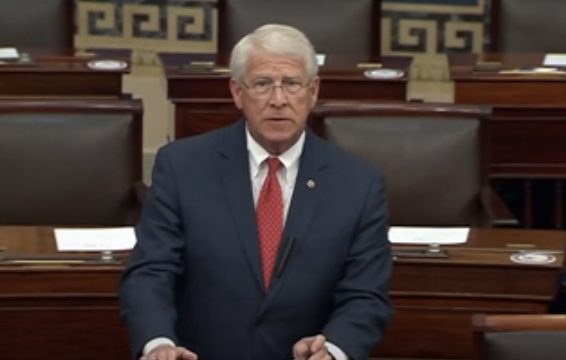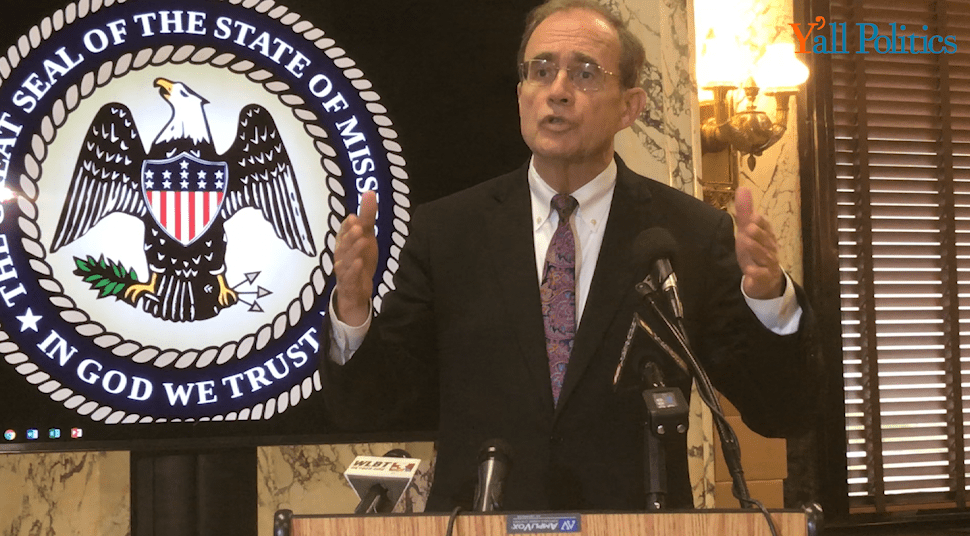
Mississippi is set to join a half dozen other states in enacting legislation to allow college athletes the right to earn income from their name, image and likeness while attending and playing for a college or university in the Magnolia State.
The other six states that have enacted similar laws are California, Colorado, Florida, Michigan, Nebraska, and New Jersey. Nearly a dozen more states are also considering such action.
SB 2313, or the “Mississippi Intercollegiate Athletics Compensation Rights Act,” was passed by the Mississippi Legislature after going through conference last weekend. Early indications are that Governor Tate Reeves will, in fact, sign the bill in to law, meaning it would go into effect July 1, 2021.
“I don’t think any state is happy about this legislation, but we’re seeing this as a necessity,” State Rep. Scott Bounds told Sports Illustrated in early March before the bill passed. “We don’t want to lose a competitive edge in recruiting, both athletically and academically, especially against those in the Southeastern Conference.”
State Sen. Nicole Boyd spoke with Y’all Politics Thursday to give her take on the bill and how it is being received. Watch Boyd’s interview below.
The bill states that college athletes can earn compensation, commensurate with market value, for the use of the name, image, or likeness of the student-athlete while enrolled at a postsecondary educational institution, and that those athletes can obtain and retain a certified agent for any matter or activity relating to such compensation.
In addition, a student-athlete must provide the college or university with written notice at least seven days prior to entering into a representation agreement with any individual for the purpose of exploring or securing compensation for use of the student-athlete’s name, image or likeness. Those representatives must be registered as athlete agents.
Compensation from the use of a student-athlete’s name, image, or likeness may not affect the student-athlete’s scholarship eligibility, grant-in-aid or other financial aid, awards or benefits, or the student-athlete’s intercollegiate athletic eligibility.
The bill does allow colleges and universities to impose reasonable limitations on the dates and time that a student-athlete may participate in endorsement, promotional, social media or other activities related to the license or use of the student-athlete’s name, image and likeness.
The NCAA has been reluctant to take further action on this issue until the United States Supreme Court rules on its case in Alston v. NCAA. While the case does not deal specifically with name, image and likeness, it was brought by former college athletes who say the NCAA’s rules restricting such compensation violate federal antitrust law. How the court rules will impact how the NCAA moves forward with their discussions regarding name, image, and likeness.
The Supreme Court heard the matter on Wednesday. You can watch the deliberations below.
Ross Dellenger with Sports Illustrated, reported on the Supreme Court hearing, saying in his article that in many respects, the Justices hammered the NCAA.
“They pried into the organization’s amateurism policy, criticizing a model that allows coaches, administrators and executives to make millions while ‘the workers,’ says one justice, go unpaid,” Dellenger wrote. “Several justices questioned the merits of the NCAA’s grievances, referring to them merely as ‘complaints’ that shouldn’t be before the court in the first place. After all, asked Justice Brett Kavanaugh, what’s an extra $5,800 per athlete when executives make billions from television revenue?
“Schools are conspiring, agreeing with competitors, to pay no salaries to workers,” Kavanaugh said. “It seems somewhat disturbing.”
Dellenger went on to say that “in one of the most significant and maybe stunning moments, Clarence Thomas, another conservative justice who experts say rarely speaks up during cases, prodded Waxman over million-dollar coaching salaries.”
“It strikes me as odd,” Thomas said, “that coaches’ salaries have ballooned and they are in the amateur ranks, as are the players.”











